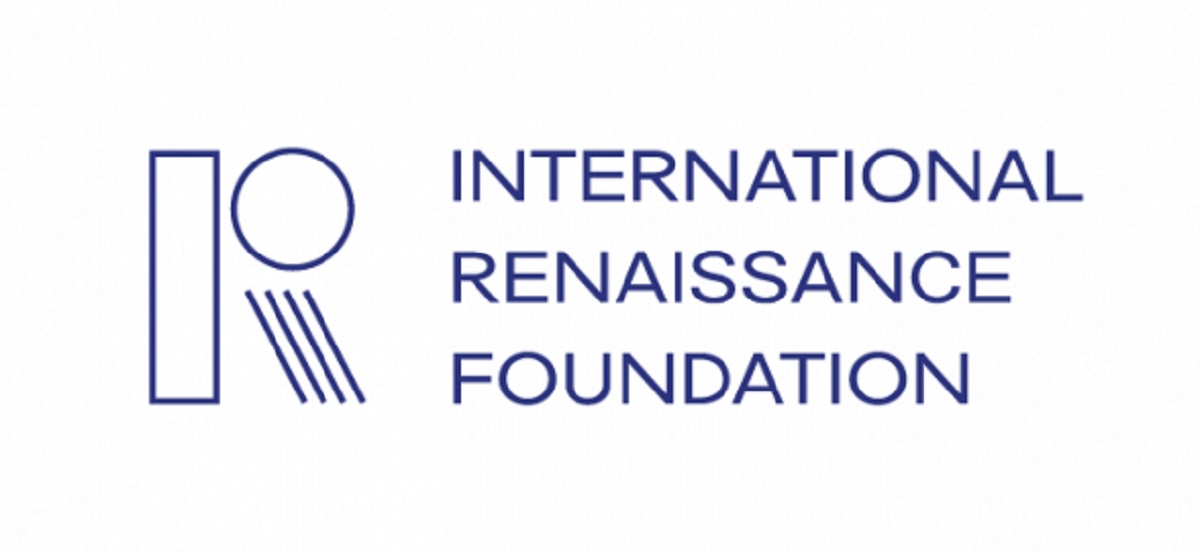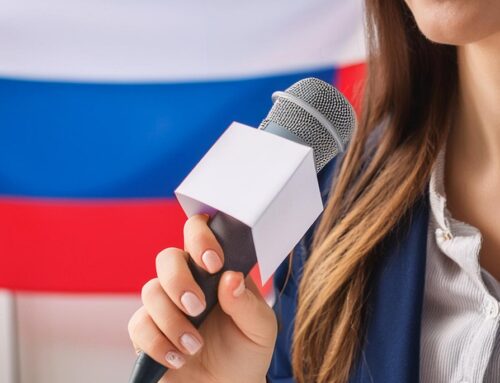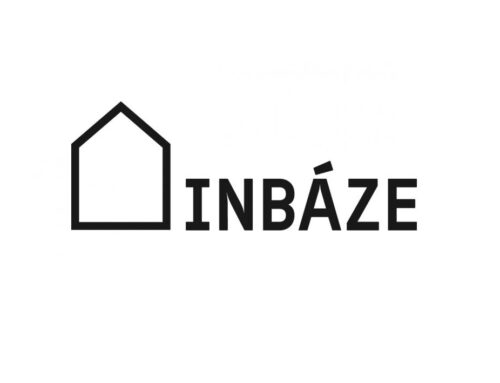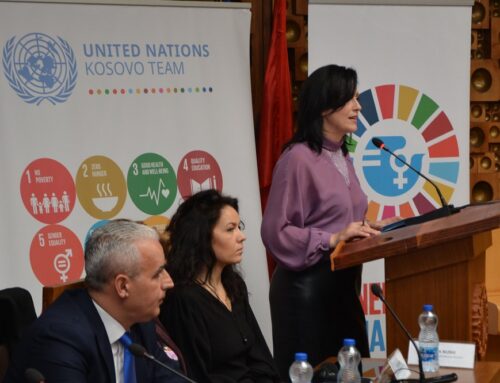More than 30 years ago, Ukraine faced the need for transformation not only at the state but also at the society level. Thus, along with the government, NGOs that aimed at changing Ukraine and its society emerged. One of the largest and the oldest organizations was the International Renaissance Foundation established in Kyiv in 1990.
This interview with the Head of the Communications Department of the International Renaissance Foundation, Sashko Kulchytsky, will provide an overview of history, goals and work of the Foundation.
- What was the initial purpose of the organization and have its mission and goals changed over time?
The Foundation has been operating since 1990. This is probably the oldest and the first fund to provide charitable assistance for the development of civil society in Ukraine. At that time George Soros deployed his network of funds in Eastern Europe. He planned initially to open a fund in Moscow but the Ukrainian intellectuals, Bohdan Hawrylyshyn in the first place, convinced Mr. Soros that the Ukrainian context was different from the Russian one and that a separate foundation had to be opened in Ukraine. Despite the fact that in other countries these foundations were called “Soros Foundation” or “Open Society”, in Ukraine the foundation received another name – Renaissance – a reference to the fact that something in Ukraine was reviving. In fact, since then the mission remains the same – we are working to build and develop an open society in Ukraine. This is the concept of Karl Popper who in 1940s wrote his work arguing that open societies (no monopoly on the truth, human rights preserved, the government accountable to citizens, etc.) were much more successful and worked better than the closed ones. In fact, we are working for this.
In 1990s the Foundation started as a charitable organization to develop, at that time, non-existent civil society and support public organizations. Initially the focus was mostly on cultural aspect – we provided a lot of support to the first center of contemporary art in Ukraine, book publishing, etc. Since 2000s, the Foundation has been moving more into the sphere of promoting the formation of Ukraine.
We have six programs and two initiatives. Among the programs we have: Human Rights and Justice (to promote rule of law, respect for human rights, etc.), European program (we assist in monitoring implementation of the Association Agreement, implementation of Green Deal in Ukraine, and, in general, promote a pro-Western vector). We have Public Health program that deals with the access to medication, treatment and preventive medicine. We have a program Social Capital, which works on issues of social cohesion, development of public organizations as well as on the media to some extent. We also have a program – Democratic Practice – which deals with the development of public participation and communities in the context of decentralization, anti-corruption, transparency, accountability. And we have a Roma program focusing on the development of Roma communities. Also there are two other initiatives that we are doing together with the Swedish Embassy. The first one is environmental that deals with the development of environmental organizations. And the second one supports analytical centers and the development of the analytical component in public organizations.
- How do you manage to support all programs of the Foundation?
We see our programs as parts of one puzzle that makes up an open society. And these are the points where we see we can make efforts: we have expertise, established contacts, ideas, and these are the issues on which we have been working for over 30 years. Even with a little effort, but at the right points we can achieve a good result. Very often we work as the first donor in initiatives which receive then more funding from large international donors. We have operational projects that we are implementing, but still most of the funds go to support public organizations. We understand that the best approach is to help to pilot something, and then it’s good if other donors can support it. If initiatives exist without donors at all, that’s great. Some initiatives can be transferred to the state. For example, the External Independent Evaluation (set of exams aimed at determining the level of educational attainment of high school graduates for further admission to universities – ed.’s note) – was developed within the Foundation as an operational project. Over the time we managed to transfer the almost ready developments to the Ministry of Education and it has been working as a state program for 15 years. We were also the first to support the free legal aid system, which over time was more actively supported by the European Commission for a full-fledged nationwide launch and now exists as a state program. We are not the largest donor in terms of funds, but we are definitely the largest donor in terms of supported projects and organizations. If we take last year, we supported more than 300 organizations and more than 500 projects. Very often we support those initiatives in which we see potential and where the impetus is needed for something to start working, show some results and then looking for either other or more partners.
- Which initiatives are the priority in your work?
It is very difficult to say what we focus on the most because initiatives change every year. For example, in 2020 we were the first donor to launch initiatives to counter the negative effects of Covid-19. There was the Humanity and Mutual Assistance initiative, and as part of it we provided 200+ grants and received a huge number of applications for support. In 2021 we worked a lot on environmental components, digital transformation of Ukraine in Public Health sector and in the legal field. We have piloted digitalization projects, creating mobile applications to increase access to legal aid. There were various kinds of projects with the Ministry of Digital Transformation of Ukraine. The issue of public participation (promoting the completion of decentralization reform, working with communities directly on the ground) is also always relevant. On the one hand, at this level we work with the Cabinet of Ministers, and on the other hand, we are trying to show how some things can work at the community level.
We are announcing competitions to which communities and organizations come with their ideas, and we provide funding for certain ideas that are supported by the competition committee. In the Foundation we have a multi-level structure under which the grant is issued. If the grant is not big, the initiatives go through a specialized program council which consists of people who do not work in the Foundation, are often representatives of public organizations and are authoritative in a particular field. In some cases, these may be government officials. They make their decisions based on competitive and non-competitive announcements. If the grant is more than $ 50 000, the initial assessment of the expert council goes to the board of the Foundation for their approval. Only upon the decision of the board, the Foundation initiates registration of documents, agreements, etc. Policies of conflict of interest operate at all these levels – that helps to ensure transparency in decision-making.
- What are the principles on which grant winners are selected?
Most public organizations are supported through competitions. There are criteria, pre-developed and agreed, according to which a grant will be evaluated. We do not fund political parties, organizations that are directly affiliated with political parties, religious movements, government agencies, communal enterprises, and anything related to the public sphere. Some competitions have more formal restrictions on them (e.g., that they must have public reports for the last two years).
- What Ukrainian and foreign organizations does the Foundation cooperate with? Do you work with the Ukrainian government?
International Renaissance Foundation is a part of Open Society Foundations, Open Society Network. It mainly works with the Open Society entities in the Eastern Partnership region, and also with the Stefan Batory Foundation in Poland. There are organizations through which we additionally promote messages abroad, such as the Ukrainian Think Tanks Liaison Office in Brussels. In Ukraine the partners we work with are constantly changing with an average of 300 grantees per year, of which 20-30% are new.
The Foundation cooperates with the Government of Ukraine. As the government needed additional resources to launch electronic Covid-19 certificates faster and on time, we have supported the development of e-Covid Certificates within Diia (online service of public services in Ukraine – ed.’s note) so that they could be mutually recognizable and accountable with the EU. We did not fund the government as such, we provided support to the organizations that supported it in terms of the software product.
- What do you think are the greatest achievements of the Foundation?
Going back to the 1990s, everything that the Foundation started doing was for the first time. For example, we were very active in promoting cultural initiatives – more than 800 books, mostly non-fiction (scientific, philosophical literature), were translated into the Ukrainian language and published for the first time. We believe that it is our merit that the book market is now actively developing and has perspectives.
In the late 1990s – early 2000s, we were the first to launch and support initiatives that are now taken for granted – we supported the first post-election exit poll, the first televised debates and the first election observation. We already went through systemic things, such as scholarships for scientists and students. At that time, it allowed to keep at least some scientists in Ukraine. We were also the first to launch initiatives that later became state-owned – we trained former servicemen and miners for other professions. This is something that we partially repeated later in 2014/15, when we launched training for ATO (Anti-Terrorist Operation) veterans to start their own businesses. After the Revolution of Dignity, we helped experts from strategic think tanks to design the reforms that are now being implemented, supported migrants from the temporarily occupied territories and Anti-Terrorist Operation veterans. We have largely financed the relocation of Donetsk University from Donetsk to Vinnytsia (a city located in the Central part of Ukraine).
There was also documentation of human rights violations in the occupied territories. There have been many separate projects, from documenting what has been happening there to supporting Ukraine in international courts and supporting evidence gathering. We financed the launch of a virtual museum of Russian aggression, which will have the largest evidence base of Russia’s military aggression against Ukraine. The issue of overcoming impunity for crimes in wartime and in the occupied territories is an important aspect of our action right now.
In the field of Public Health, we actively worked on the issue of painkillers for palliative critically ill patients. Often these people are incurably ill but they still need to be treated with dignity (dignity is one of the most important concepts for us). In fact, these processes in Ukraine have not been completed yet, though the systemic changes have already taken place. We created the first children’s hospice and supported hospices in general. We also launched the first in Ukraine CNAP (Center for Administrative Services).
An initiative for the development of think tanks was also launched. Within the initiative we supported about 40 think tanks as well as the launch of various analytical products. In the field of transparency and accountability, we supported the writing of a number of legal bills or control tools. Working in anti-corruption, we have always placed more emphasis on preventive mechanisms.
Work on the development of the free legal aid system is still ongoing. We have launched a system called Custody Records for monitoring detainees at the police stations. This should help combat torture. It has been implemented in four cities and we expect it to become all-Ukrainian. A month and a half ago, the government adopted a strategy to combat torture in law enforcement agencies. We also used to monitor places of detention, specialized boarding schools, mental hospitals, etc. and adherence to human rights there. Now the European Commission is more involved in this. Though we also join the monitoring and communicate with detainees as well as verify the formal criteria for their detention.
We put a lot of effort into implementing the Association Agreement, but we were even more involved in advocating a visa-free regime at the time when everyone took it as something absolutely unrealistic (approximately since 2005 the Foundation offered projects aimed at promoting visa-free travel). Our director, Oleksandr Sushko, was awarded by the President of Ukraine for assistance in implementing the visa-free regime.




